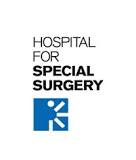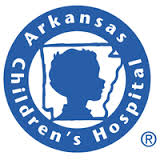The Treatment of Progressive Early Onset Spinal Deformities: A Multi-Center Outcome Study
| Status: | Recruiting |
|---|---|
| Conditions: | Orthopedic, Women's Studies |
| Therapuetic Areas: | Orthopedics / Podiatry, Reproductive |
| Healthy: | No |
| Age Range: | Any - 18 |
| Updated: | 2/17/2019 |
| Start Date: | October 2008 |
| End Date: | December 2032 |
| Contact: | Anna McClung, BSN, RN |
| Email: | amcclung@growingspine.org |
The purpose of this study is to examine the treatment, both surgical and non-surgical, of
patients with any form of early onset scoliosis. Such treatment may include the use of growth
friendly devices that are surgically or magnetically lengthened; or the use of serial body
casting or bracing, or observation. Outcomes examined will be what can be seen physically on
the patient and on x-ray, as well as parent perception of how the treatment effects their
child with the use of a health-related quality of life (HRQOL) questionnaire.
patients with any form of early onset scoliosis. Such treatment may include the use of growth
friendly devices that are surgically or magnetically lengthened; or the use of serial body
casting or bracing, or observation. Outcomes examined will be what can be seen physically on
the patient and on x-ray, as well as parent perception of how the treatment effects their
child with the use of a health-related quality of life (HRQOL) questionnaire.
This multi-center study will evaluate the long-term clinical and radiographic outcomes of
Early Onset Scoliosis (EOS) and other Early Onset Spinal and Chest Wall Deformities in a
large population of patients.
The study will attempt to answer the following clinical questions:
1. How do clinical parameters (e.g. height, weight, pulmonary function, incidence of
complications) differ between:
1. Age groups
2. Etiologic groups
3. Treatment types including operative and non-operative methods
4. Patients who receive definitive spinal fusion versus those who do not
2. How do radiographic parameters (e.g. curve size, spinal height, thoracic dimensions,
sagittal profile, pelvic parameters, spinal balance) differ between:
1. Age groups
2. Etiologic groups
3. Treatment types including operative and non-operative methods
4. Patients who receive definitive spinal fusion versus those who do not
3. How does health-related quality of life (HRQOL), using the EOSQ-24 outcomes tool, differ
between:
1. Age groups
2. Etiologic groups
3. Treatment types including operative and non-operative methods
4. Patients who receive definitive spinal fusion versus those who do not
4. What demographic, clinical, radiographic, and surgical factors contribute to the
incidence of complications?
5. For patients with a particular diagnosis, age and/or treatment type, what are the
clinical, radiographic and HRQOL changes before and after treatment?
6. What are the mechanisms that cause rod breakage in growing rod constructs? (This study
question is a collaborative research study with the U.S. Food and Drug Administration).
Early Onset Scoliosis (EOS) and other Early Onset Spinal and Chest Wall Deformities in a
large population of patients.
The study will attempt to answer the following clinical questions:
1. How do clinical parameters (e.g. height, weight, pulmonary function, incidence of
complications) differ between:
1. Age groups
2. Etiologic groups
3. Treatment types including operative and non-operative methods
4. Patients who receive definitive spinal fusion versus those who do not
2. How do radiographic parameters (e.g. curve size, spinal height, thoracic dimensions,
sagittal profile, pelvic parameters, spinal balance) differ between:
1. Age groups
2. Etiologic groups
3. Treatment types including operative and non-operative methods
4. Patients who receive definitive spinal fusion versus those who do not
3. How does health-related quality of life (HRQOL), using the EOSQ-24 outcomes tool, differ
between:
1. Age groups
2. Etiologic groups
3. Treatment types including operative and non-operative methods
4. Patients who receive definitive spinal fusion versus those who do not
4. What demographic, clinical, radiographic, and surgical factors contribute to the
incidence of complications?
5. For patients with a particular diagnosis, age and/or treatment type, what are the
clinical, radiographic and HRQOL changes before and after treatment?
6. What are the mechanisms that cause rod breakage in growing rod constructs? (This study
question is a collaborative research study with the U.S. Food and Drug Administration).
Inclusion Criteria:
- Patients of any age and any diagnosis who undergo a growth-friendly surgical
procedure, including but not limited to growing rods, VEPTR, Shilla, hybrid
constructs, spinal tethering and staples
- Patients of any age and any diagnosis who undergo casting
- Patients of any diagnosis 10 years of age and younger who undergo spinal fusion of the
thoracic and/or lumbar spine
- Patients of any diagnosis under 6 years of age with scoliosis curves of the thoracic
and/or lumbar spine measuring > 25 degrees. Observed and braced patients included
Exclusion Criteria:
- Cervical spine anomalies alone will not be included
- Patient/family is unwilling to participate in the study
We found this trial at
20
sites
Vancouver, British Columbia
Principal Investigator: Firoz Miyanji, FRCS, MD
Click here to add this to my saved trials
Ann Arbor, MI 48109Bus: -
Ann Arbor, Michigan 48109
Ann Arbor, Michigan 48109
Principal Investigator: Frances A Farley, MD
Click here to add this to my saved trials
11100 Euclid Avenue
Cleveland, Ohio 44106
Cleveland, Ohio 44106
(216) 844-1000

Principal Investigator: George H Thompson, MD
Rainbow Babies and Children's Hospital UH Rainbow Babies & Children’s Hospital is a 244-bed, full-service...
Click here to add this to my saved trials
Gainesville, Florida 32610
(352) 392-3261

Principal Investigator: Laurel C Blakemore, MD
University of Florida The University of Florida (UF) is a major, public, comprehensive, land-grant, research...
Click here to add this to my saved trials
4650 Sunset Blvd
Los Angeles, California 90027
Los Angeles, California 90027
(323) 660-2450

Principal Investigator: David L Skaggs, MD
Childrens Hospital Los Angeles Children's Hospital Los Angeles is a 501(c)(3) nonprofit hospital for pediatric...
Click here to add this to my saved trials
South 34th Street
Philadelphia, Pennsylvania 19104
Philadelphia, Pennsylvania 19104
215-590-1000

Principal Investigator: John M Flynn, MD
Children's Hospital of Philadelphia Since its start in 1855 as the nation's first hospital devoted...
Click here to add this to my saved trials
60 Crittenden Blvd # 70
Rochester, New York 14642
Rochester, New York 14642
(585) 275-2121

Principal Investigator: James O Sanders, MD
University of Rochester The University of Rochester is one of the country's top-tier research universities....
Click here to add this to my saved trials
1800 Orleans St.
Baltimore, Maryland 21287
Baltimore, Maryland 21287
410-955-5000

Principal Investigator: Paul D Sponseller, MD
Johns Hopkins Hospital Patients are the focus of everything we do at The Johns Hopkins...
Click here to add this to my saved trials
Click here to add this to my saved trials
Click here to add this to my saved trials
Dallas, Texas 75219
Principal Investigator: Charles E Johnston, MD
Click here to add this to my saved trials
6621 Fannin St
Houston, Texas 77030
Houston, Texas 77030
(832) 824-1000

Principal Investigator: John P Dormans, MD
Texas Children's Hospital Texas Children's Hospital, located in Houston, Texas, is a not-for-profit organization whose...
Click here to add this to my saved trials
Indianapolis, Indiana 46202
Principal Investigator: Karen S Myung, MD
Click here to add this to my saved trials
2401 Gillham Road
Kansas City, Missouri 64108
Kansas City, Missouri 64108
Principal Investigator: Richard M Schwend, MD
Click here to add this to my saved trials
Arkansas Children's Hospital Arkansas Children's Hospital (ACH) is the only pediatric medical center in Arkansas...
Click here to add this to my saved trials
535 E 70th St
New York, New York 10021
New York, New York 10021
(212) 606-1000

Principal Investigator: Roger F Widmann, MD
Hospital for Special Surgery Founded in 1863, Hospital for Special Surgery is the nation
Click here to add this to my saved trials
Click here to add this to my saved trials
Click here to add this to my saved trials
111 Michigan Ave NW
Washington, District of Columbia
Washington, District of Columbia
(202) 476-5000

Principal Investigator: Matthew E Oetgen, MD
Childrens National Medical Center As the nation’s children’s hospital, the mission of Children’s National Medical...
Click here to add this to my saved trials
Wilmington, Delaware 19803
Principal Investigator: Suken A Shah, MD
Click here to add this to my saved trials
